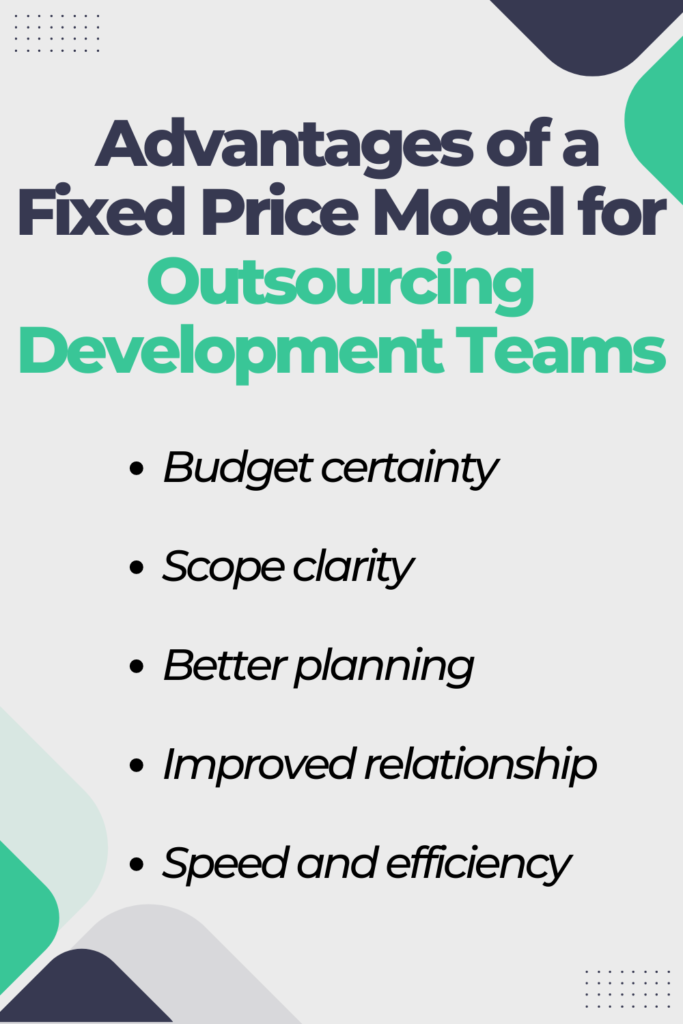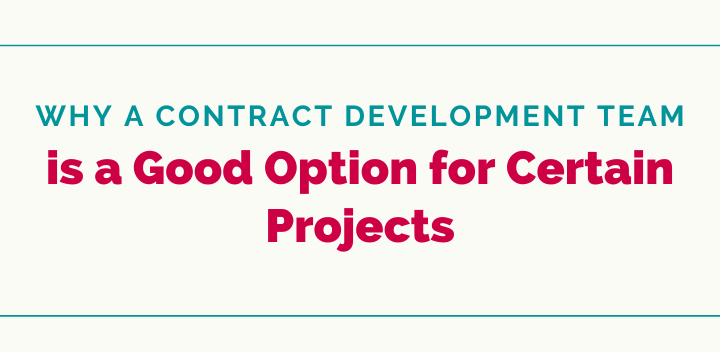Table of Contents
What is a Fixed Price Model and How Does It Help the Outsourcing Development Team?
A fixed price model is a common project delivery contract used by development teams when outsourcing to external vendors. It is based on an agreement between the client and vendor that the vendor will deliver a specified product or service for a pre-agreed fixed cost.
This type of contract protects the client from any unexpected costs and provides the vendor with more predictable revenue streams. Furthermore, clients are able to benefit from greater control over the timeline and quality of delivery, as it encourages vendors to remain focused on delivering results within budget and scope.
The main advantage of this model is that it gives the outsourcing development team an assurance that they will be compensated for their work regardless of how much time and effort they invest in the project.
As such, it provides the company with some level of comfort when working with an outside team. Moreover, fixed-cost contracts also help to manage risks associated with projects since there is no need to worry about project overruns due to unexpected issues or delays.
This can be especially helpful in helping the company maximize profits. Changes to the terms of the contract may require that specific changes be made to the existing capital assets.
Advantages of a Fixed Price Model for Outsourcing Development Teams
Outsourcing development teams can be a great way to get the job done in a cost-effective and efficient manner. And with the fixed price model, companies can get even more bang for their buck. This model comes with numerous advantages such as predictability, scalability, and cost savings.
By signing a fixed-cost contract, companies are able to predict exactly what they will be paying for the project before it begins. This helps them ensure that they do not go over budget or run into unexpected costs during the project’s development phase.
Furthermore, this model allows companies to scale up or down their project without worrying about additional costs associated with it – making it ideal for businesses of any size. Finally, this model is incredibly cost-effective as it lets companies avoid paying for any additional hours of work if the project does not require them.
In this article, we will discuss the top 5 advantages of a fixed price model for outsourcing development teams.
Budget Certainty
fixed pricing provides a clear understanding of project costs upfront, reducing financial risks for both the client and vendor.
Scope Clarity
Fixed pricing encourages both parties to define project scope and requirements clearly, reducing the risk of scope creep. The fixed price model helps companies to define the scope of the project clearly. This allows them to plan and budget for the project accordingly as they have a clear idea about the cost upfront. It also helps teams by giving them a guideline for what should be done and when it should be completed.
Better Planning
By agreeing on a fixed price, both parties can plan their resources and timelines more effectively. The fixed price model allows companies to get accurate estimates for their project timelines, budget, and resources needed for successful completion.

Read Out Our Blogs: https://blog.engineermaster.co/
Improved Relationship
Fixed pricing promotes a more collaborative and transparent relationship between client and vendor.
Speed and Efficiency
Fixed pricing incentivizes the vendor to complete the project efficiently, reducing the risk of delays and increasing the speed of delivery.
Use a Fixed Price Model to Streamline Your Development Team’s Processes and Maximize Their Efficiency
The fixed price model is an effective way to streamline development processes and maximize the efficiency of any development team. It allows for better budgeting, reduced risks, and improved collaboration between the client and the outsource development team. By using a fixed price model, companies can ensure that their projects are completed within budget, with quality assurance.
Additionally, it eliminates the guesswork involved in managing multiple teams in different locations. The fixed price model also provides an opportunity to increase productivity by providing access to a large pool of talent while reducing costs associated with hiring full-time developers. Ultimately, the fixed price model helps companies get their projects done faster and more efficiently while ensuring that all parties involved are satisfied with the results.



 Like
Like LOVE
LOVE Win
Win Cute
Cute LOL
LOL OMG
OMG WTF
WTF Fail
Fail



3 thoughts on “Everything You Need to Know About Fixed Price Models for Your Development Team”